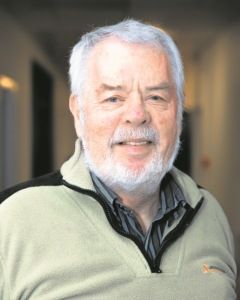Opinion
This Week’s Editorial: Above the clouds the sky is blue
Ejvind Sandal
This article is more than 8 years old.
In Beijing last weekend, the National People’s Congress opened with the promise to clear the air so the sky is blue again.
China done with coal
Some 60 percent of energy production in the People’s Republic is still derived from fossil fuels such as coal, so it is about time. Since more and more of the world’s population are taken to the big cities, pollution will be the given result unless something is done. Among the Chinese parliament’s planned moves is replacing the capital’s taxis with electric cars – all 80,000 of them.
Denmark stuck on taxis
In Denmark we could do the same, but it is not likely to happen in the near future. The political establishment has agreed on new standard guidelines for taxis. It has a varnish of liberalisation, but in reality it is a conspiration to prevent Uber from taking a market share.
If a private person with a nice car wants to offer transport to the public, he has to go through a training program and the car has to undergo technical changes such as the installation of seat sensors and security cameras.
It is an example of not paying attention to the disruption that is about to revolutionise the transport sector.
Taking over quickly
In a few years’ time you will get a fine – not only for speaking into your mobile while driving, but for touching the wheel. Pilot projects testing driverless vehicles are on the way. The transportation of goods will be performed by drones. Buses and trains are to be robotised like the Copenhagen Metro. And it works.
Some people swear that they are not entering an airplane without a pilot in the front seat. We understand that on some flights the pilots are forbidden from touching the controls during landing and take-off. Computers are better at it. Our minds are still a bit slow. If it is possible in the sky – then ground transport should be a piece of cake.
Getting left behind
It is all happening very fast. But in Copenhagen we are still waiting for our politicians to modernise our infrastructure for the future. Electrify the last railway lines. Ease the taxation on electric cars. Support the share movement so we can have a better utilisation of carparks. Improve the public sector’s use of the internet.
The Danes are ready for it. We do not have to wear masks or count the victims in their thousands to understand the importance of a blue sky.
The main thing to remember is that the Chinese blue sky is also our blue sky, so we cross our fingers and hope.

About
Ejvind Sandal
Copenhagen Post editor-in-chief Ejvind Sandal has never been afraid to voice his opinion. In 1997 he was fired after a ten-year stint as the chief executive of Politiken for daring to suggest the newspaper merged with Jyllands-Posten. He then joined the J-P board in 2001, finally departing in 2003, the very year it merged with Politiken. He is also a former chairman of the football club Brøndby IF (2000-05) where he memorably refused to give Michael Laudrup a new contract prior to his hasty departure. A practising lawyer until 2014, Sandal is also the former chairman of Vestas Wind Systems and Axcel Industriinvestor. He has been the owner of the Copenhagen Post since 2000.










































